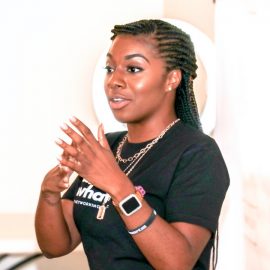

This article is an excerpt from the Shortform book guide to "The Startup of You" by Reid Hoffman and Ben Casnocha. Shortform has the world's best summaries and analyses of books you should be reading.
Like this article? Sign up for a free trial here.
How do you build professional relationships that will benefit your career? What does a strong network look like?
Without supporters and advisors, you can only make decisions based on your limited perspective and knowledge. A network, however, exposes you to many different perspectives that can help you make professional decisions.
Continue reading to learn how to build and strengthen your professional relationships.
Build Networks by Giving Value
According to The Startup of You by Reid Hoffman and Ben Casnocha, a strong network is made up of diverse connections and close relationships, which you can cultivate by viewing networking as forming genuine and mutually-beneficial relationships. Instead of focusing on getting something out of your contacts, take interest in their concerns, too. When building your network, the authors suggest you focus on having strong relationships rather than making many surface-level connections. This generates the most reliable support, opportunities, and ideas to aid you in your professional growth.
The authors offer a few suggestions to build professional relationships:
Give value to others first. To nurture your connections, take time to figure out what they value and offer them something first. It doesn’t have to be anything costly, the authors argue. You could provide insider information, help them practice for a job interview, or put your existing skills to use, like by giving them a painting to hang up in the bakery they just opened.
Accept their help. According to the authors, people enjoy helping others as it makes them feel good about themselves and strengthens their relationship with you. When people offer to help you, accept with gratitude.
Stay in touch. Many people are afraid that they’ll annoy others by trying to keep in touch, but the authors argue that this is rarely the case and encourage you not to assume so unless they give you a definitive “no.” Often, if you don’t receive a response, it might be because people are busy and want to be sure that you actually care about connecting with them and are willing to follow up. To show that you care, the authors advise you to reach out with a personalized message focused on them rather than an update about yourself or a generic greeting.
| Additional Suggestions For Building Your Network In Never Eat Alone, Keith Ferrazzi argues that you must develop your connections before you need them and provides more detailed suggestions you can consider when building your network as Hoffman and Casnocha advise. He agrees with the two authors that networking is a two-way street and adds that taking without giving can give you a bad reputation because you’ll be viewed as selfish or exploitative. Give value to others first: When thinking of what you can offer the other person, Ferrazzi points out that you’ll need to take the initiative in identifying what they need because many people are reluctant to ask for help. To do this, he recommends you look for any hints during your conversations with them, browse their social media, and reflect on what their motivations are. If you can’t identify any specific needs, Ferazzi states that everyone values health, wealth, and their children, which you can support. Accept their help: Ferrazzi agrees with Hoffman and Casnocha that you should accept help from your connections, adding that, contrary to what many believe, there’s no limit to how many times someone is willing to help you. In fact, asking repeatedly for someone’s help communicates to them that you consider them valuable and capable, strengthening your relationship and making them like you more. Stay in touch: Like Hoffman and Casnocha, Ferrazzi advises you to stay in touch with your contacts. He adds that following up is important for both existing contacts and new contacts. For existing contacts, reaching out frequently shows that you care and value them, which makes them more likely to continue their relationship with you. For new contacts, Ferrazzi writes that they’ll forget about you if you don’t follow up since they likely meet new people regularly. He recommends you follow up with new contacts within 24 hours and a second time within the month so that you can continue to deepen the relationship. |

———End of Preview———
Like what you just read? Read the rest of the world's best book summary and analysis of Reid Hoffman and Ben Casnocha's "The Startup of You" at Shortform.
Here's what you'll find in our full The Startup of You summary:
- Why you must approach your career as if it's a startup company
- How to overcome unexpected career obstacles
- The three entrepreneurship principles you should adopt






